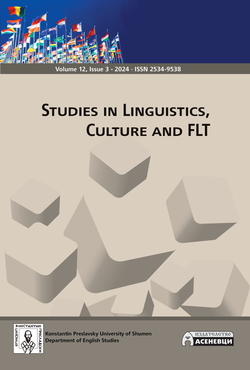Exploring an Indonesian EFL teacher’s identity development: A story of hybridity in liminality
Exploring an Indonesian EFL teacher’s identity development: A story of hybridity in liminality
Author(s): Carla Sih Prabandari, Ida Fatimawati Adi Badiozaman, Kristina TurnerSubject(s): Social Sciences, Education, Adult Education
Published by: Шуменски университет »Епископ Константин Преславски«
Keywords: EFL teacher identity; professional identity tension; hybrid identities; liminal space; Teacher Professional Education (Pendidikan Profesi Guru)
Summary/Abstract: The Indonesian programme of Pendidikan Profesi Guru (PPG) or the Teacher Professional Education (TPE) best describes a liminal space where its participants transform from uncertified status to certified ones. This paper uses the lens of liminality theory to explore the experience of an Indonesian in-service EFL (English as a Foreign Language) teacher’s identity reconstruction during a liminal period of TPE. The participant’s liminality made her adopt a new identity as a teacher-student hybrid in becoming a certified EFL teacher. In this single case study, the data were collected from two interviews with Olga (a pseudonym), her reflective writings and lesson plans, and video observations of the teaching practicum. The findings reveal that being a teacher-student hybrid, Olga performed multiple roles simultaneously: as a teacher, student and novice researcher. Olga faced various professional identity tensions during the programme. By exercising agency, Olga transformed tensions into learning experiences and benefited from her hybridity in that it afforded her an opportunity for self-development of learning, cognition, emotion and agency. Thus, this study offered a new way of understanding hybridity in liminality experienced by an EFL teacher while attending an online professional education. The article concludes with implications for educational policies and practices, suggesting the need for continuous support, integration of hybridity, adjustments in teacher training, addressing identity tensions, and conducting future research to enhance teacher development and effectiveness.
Journal: Studies in Linguistics, Culture, and FLT
- Issue Year: 12/2024
- Issue No: 3
- Page Range: 008-030
- Page Count: 23
- Language: English

